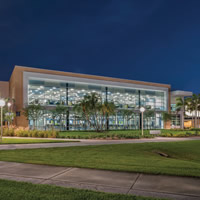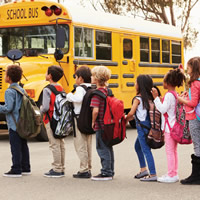Colleges and universities should have plans in place at the beginning of the school year to ensure the safe management of hazardous waste. Doing so ensures the safety of both the campus and surrounding communities.
Designers should consider these three things.
Card technology is evolving. Are you staying current?
Former Governor of Massachusetts Deval Patrick once said, “No child will be able to succeed academically if they don’t first feel safe in school. No teacher will be able to teach at their best if they aren’t confident there’s a plan in place to ensure their school is well prepared for an emergency.” Creating a safer educational institution begins with the facility’s design. Mariana Lavezzo, a K-12 Education designer with the DLR Group, recently talked with SP&M about this approach to creating safer schools.

When the conversation moves from how to secure buildings and expands to securing entire campuses, attention to environmental design can help with answers.

Make sure to check credentials, qualifications of third-party contractors, staff.
A look at the safety concerns of renewable energy storage.

For one elementary school principal, reorganizing the end of the school day has made life less chaotic for teachers, students, and parents.
Beware of inaccurate information when creating your plans.
Supportive strategies are essential for successful entry-point screening.

Hardening school buildings from a maintenance perspective.